5 Steps to Take After a Hurricane
Hurricanes and other natural disasters may be scary and chaotic for those who are living in such conditions. In order to promote safety and feel reassured, people prepare by stocking up on food, water, supplies, shuttering up houses, and sometimes evacuating. As Americans have recently witnessed the detrimental effects of Hurricane Harvey (Texas) and Hurricane Irma (Florida), becoming informed about hurricane safety is becoming increasingly vital. In order to avoid a frenzy of personal injury and hiring a legal professional, various steps should be taken. The following 5 steps to take after a hurricane will provide clarification and guidance in the event that you experience a hurricane.
Step 1: Contact Your Loved Ones
Contacting your loved ones may be one of the most important things to do before and after a hurricane. Before the storm hits, contact your loved ones to communicate where you will be during the storm, and a possible emergency evacuation route. During the duration of the storm, it is possible that you will lose power, limiting the possibility for outside communication. After the storm is over, and once your electricity becomes restored, call your loved ones to ensure their safety, and to communicate the safety of you and your family.
Step 2: Check Your Surroundings
Once meteorologists confirm the storm has passed entirely, check your surroundings. A downed overhead power line or a broken gas line poses risk to surrounding people, and can be a serious hazard after a storm. Immediately call the utility company to inform them of the issue. Be sure to avoid the hazardous area until personnel arrive and properly fix the problem.
Step 3: Be Careful Before Cleaning
Many people grow eager to examine their house and the surrounding area once a storm has passed. While getting your life back to normal, be careful. Cleaning up after a hurricane and other natural disasters can be risky, with various hazards that were not previously presented. Experts recommend to avoid walking or driving through deep water that is unclear. If able, safety shut off your power system at home. Dangers include downed overhead power lines, broken gas lines, fallen trees, structural damage, lose debris, and broken glass. If your home appears to have any of these or similar dangers, do not attempt to clean up the damage yourself. Call and wait for a professional team to arrive at your home. If a natural disaster damages your home, locate a safe place to stay until a professional can clean and restore your home.
Step 4: Contact Your Insurance Company
Contact your insurance company in order to obtain a damage assessment, enabling you to file a claim. Throughout the filing process, insurance companies ask for a list of items destroyed, damaged, or missing. Walk throughout your house and create a list from memory, if possible, including items, brand names, prices, and where the items were purchased.
Step 5: Contact a Restoration Company
Be proactive by calling a certified, trained emergency services or restoration company that specifies in repairing the specific damage your home underwent during the disaster. Do not wait for a contractor to come to your door, as there will be much repair within your town post hurricane.
Hurricanes may be overwhelming, causing worry and chaos among families, neighbors, and friends. In order to remain safe during the duration of a major storm, stock up on food and supplies, board up to protect your home, and evacuate if necessary. After a hurricane, primary steps that should be taken include contacting your loved ones, checking your surroundings, staying careful during clean up, contacting your insurance company, and contact a restoration company. In the event that you become injured, contact a personal injury attorney to discuss the potential compensation you may be entitled to.
If you or someone you know has been injured in a car crash or truck accident and are in need of an accident attorney in Miami, Fort Lauderdale, West Palm Beach, Naples, Ocala, Orlando, Tampa, Gainesville, Jacksonville, Tallahassee, Ft. Myers or any other city in Florida –remember after 911, call 411! 1-800-411-PAIN can put you in touch with an experienced, aggressive network attorney who will fight for your rights and get the maximum compensation you deserve. Don’t forget to follow 411 PAIN on Twitter (@411PAIN), keep up with the conversation at #411PAIN and check out the 411 PAIN event gallery 411painevents.com!



